I recently passed 100 days of practicing math every single day 💯
I’ve wanted to beef up my math chops for a while, but I needed a good reason that would justify the time investment. Plus, it’s always easier to learn when you have a clear goal and something meaningful to apply it to.
So, it never reached the top of my priority list. But then a couple things happened recently that gave me 1) sufficient motivation and 2) a clear path.
The motivation
I’ve worked on various AI products over the last year and like understanding the technical aspects of the products I build.
But as I dug in to learn more about how large language models (LLMs) and transformers worked…I was lost. It was humbling.
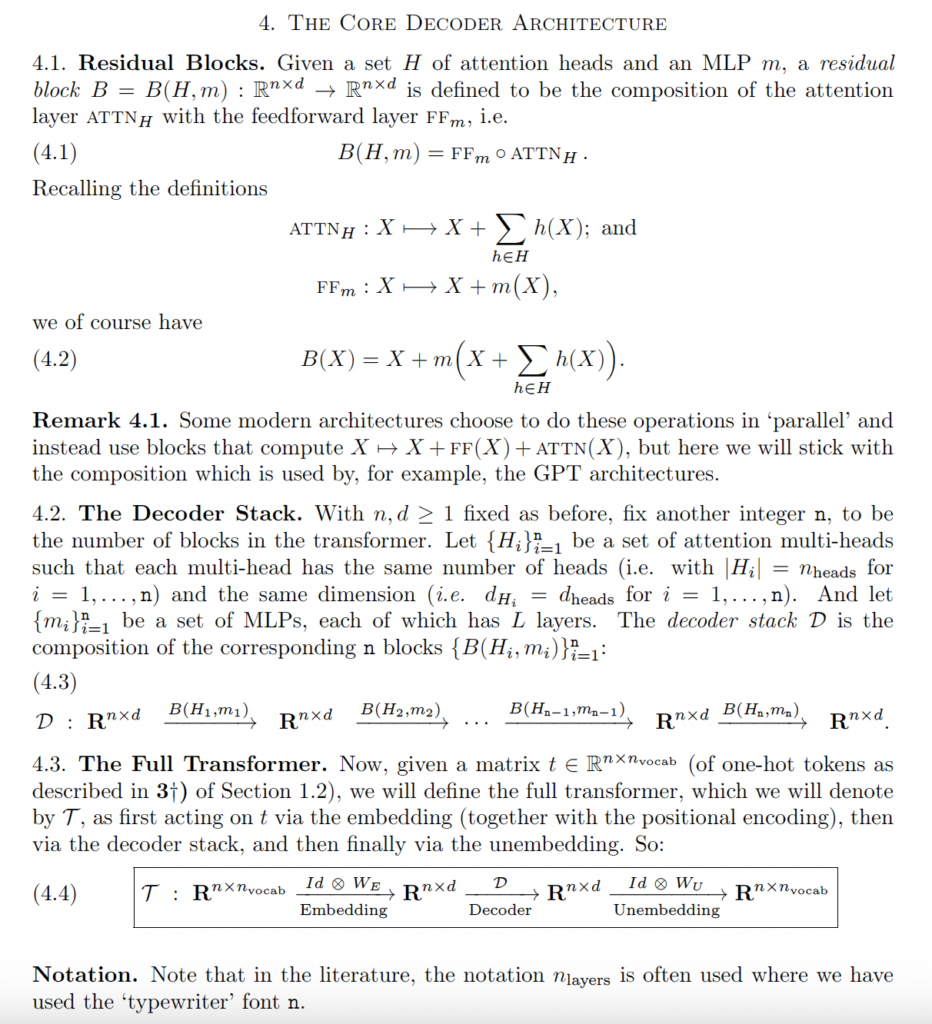
I’d need a much better understanding of stats/probability, linear algebra, and calculus (overview).
Aside from corporate projections/financials, I haven’t done much with math since grad school, so I lacked a foundation. I don’t need to become a mathematician, but at a minimum, I wanted more intuition around the core concepts and connections between them.
The path
So, how does an adult with a job, kids, a mortgage, and other hobbies, learn math in an effective, time-efficient way?
Fortunately, a friend I met a decade ago at MicroConf, Jason Roberts, founded a startup called Math Academy with his wife, Sandy. I kept up with it since the early days (they have a great story), and now I finally had a reason to try it out.
It was still in beta, so I reached out, bought a license, and was in!
Math Academy
How would I describe Math Academy?
One word: Amazing.
I’ve been consistently impressed since I started using it. Despite still being in beta, it feels quite polished and works well (though it’s clear an engineer designed the UI 😂).
Its current focus is helping kids learn math, with tools built-in for parents to help their kids be successful, but it’s quite effective for adult learners like me as well.
Their current courses cover math from middle school through university (graduate level) and are fully accredited. Below are the current courses.
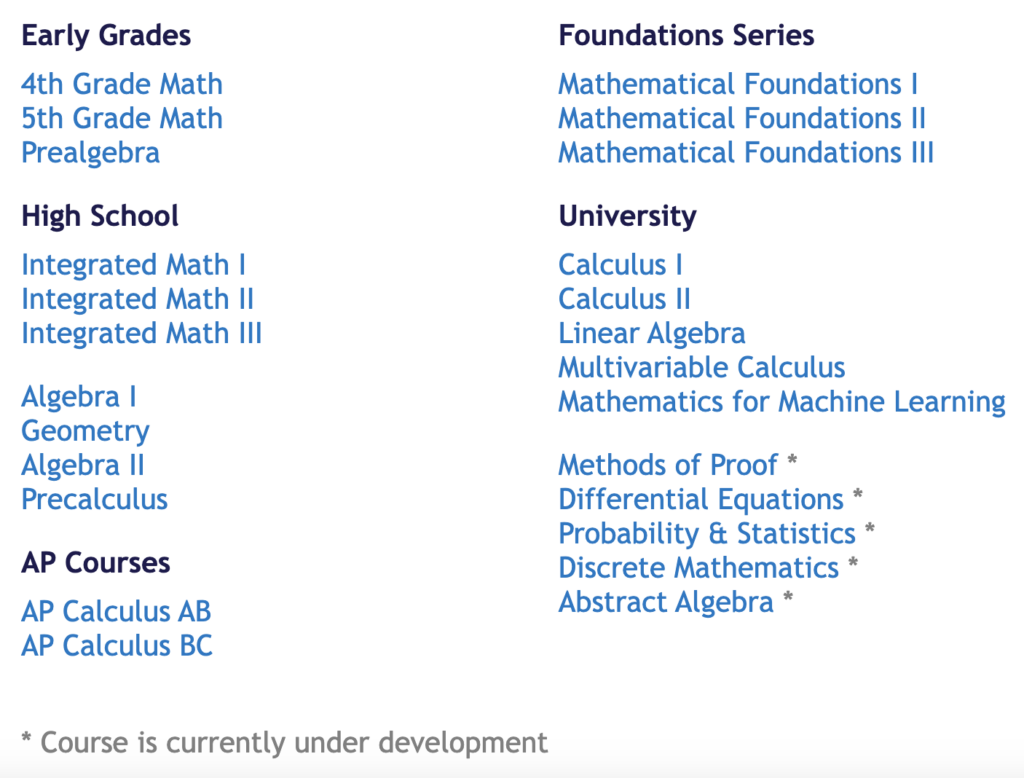
The ‘Foundation Series‘ is what I’m starting with. It’s for adults to help streamline learning (it skips the stuff that kids need, but adults don’t) and work back up through college-level math relatively quickly (emphasis on relatively 😂).
One of the other reasons I love Math Academy is the authenticity of the people in addition to the process. The founder and others are true math nerds, and they’ve spent thousands of hours teaching math. They know what works.
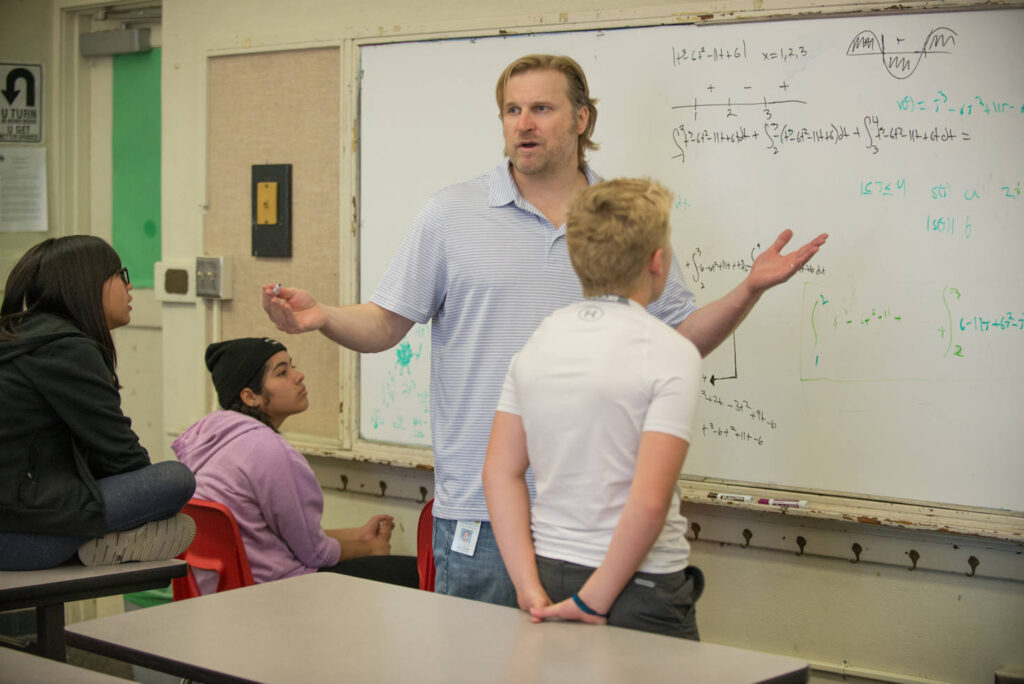
This authenticity translates to authentic learning, which comes through from the very beginning. After signing up, it starts off with a diagnostic that shows you how much of a dumbass you are helps assess your current math proficiency so you can start off at the right level.
Then the self-paced, interactive lessons start. One thing I especially love as a busy adult student is that most lessons are ~10 minutes long, which makes it relatively easy to squeeze in sessions (e.g., between kids screaming or while they’re distracted watching Bluey 😂).
I also love how it teaches, assesses, reviews, and builds on concepts. When it comes quiz time I’m often impressed with how much I’ve learned and the ability to apply it. This thing is legit—it really works.
And there are no fluffy videos that just ‘feel’ like learning. The lessons have explanations between problems to make it a very concrete, hands-on process. It’s a highly effective way of learning.
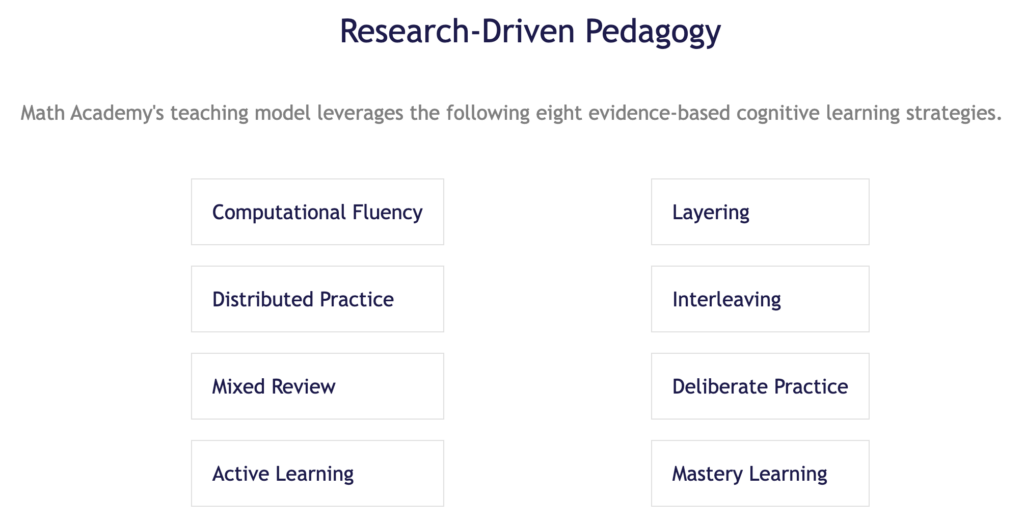
…which gets to something important: Math is hard.
Math Academy makes learning math as easy as possible, but it’s still hard work. Really hard work.
Math is hard
Learning math is challenging. It’s real work. This isn’t some casual app you can just flip through.
Unless you’re like John von Neumann, most of it requires pencil and paper to knock out. The only exception is the early lessons when you’re just refreshing and can do most of it in your head.
But if you’re serious about legitimately learning math, there is no better, more convenient way.
Setting myself up for success
To make this a habit I’d stick to, I’d have to lower the activation energy of doing it and make it as close to a new ‘default’ behavior as possible. “This is just what I do.”
So, I started with convenience and consistency, which helped me form other good habits as well.
Convenience
Learning math is hard enough, so how can we make it somewhat convenient?
Math Academy’s short (~10 min) lessons help. I also use an iPad for the lessons (it’s web-based) when I’m not at a computer and a Remarkable 2 for the work (e-ink for pencil/paper). I also found a cheap case that fits both perfectly.
This makes it easy to knock out lessons here or there. For example, I had jury duty recently and knocked out a few lessons while waiting.
And just this past Wednesday, the kids were ready early, so I got to the gym about 15 minutes early and knocked out a lesson or two in the car. I’ve also started doing them during a light walk on the treadmill (I have one under my standing desk).
My usual routine is to do lessons in the evening after the kids go down and after I work out. It is challenging to muster the energy to work out and do math after a long day, but making it a habit has made it easier.
Consistency
I’ll say it again: Math is hard. My goal is to work up to the math needed to better understand LLMs and transformers.
Thankfully, Math Academy has a ‘Mathematics for Machine Learning‘ course I’m working towards, which gives me a clear goal. Given my limited time, it will likely take years for me to get there.
Why years? Two reasons:
- Math is hard.
- Math is BIG.
I had no idea how broad and deep math was. I probably still don’t.
Case in point:
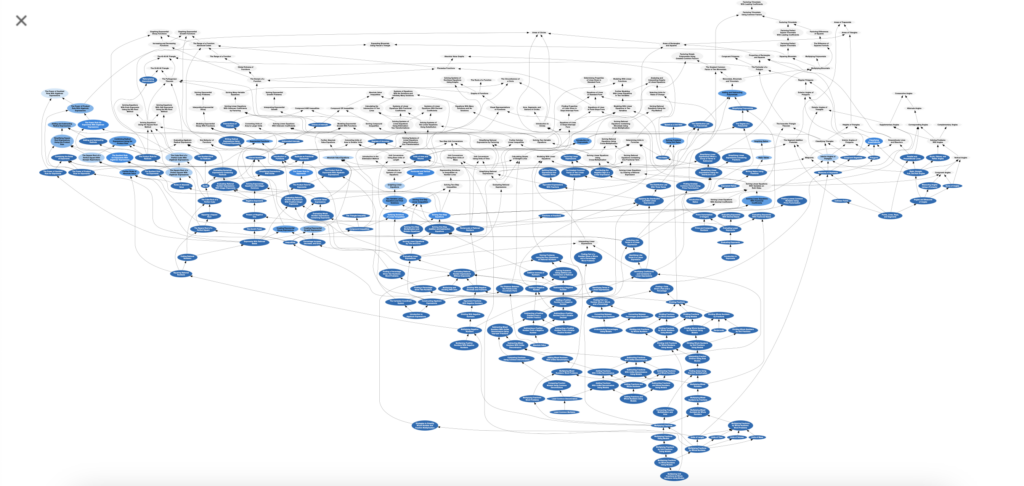
This is the knowledge graph of the concepts in the first Mathematical Foundations course, showing the topics, how they relate, and what gaps you have.
Impressive, right? And this is just the first course (!) of the ~10 or so I want to take. It’s going to take years.
So, how do I get there? One lesson at a time. If I keep at it, I will get there.
I’ve been doing at least 1 lesson a day, every day since I started, giving me a 106-day streak as of this writing.
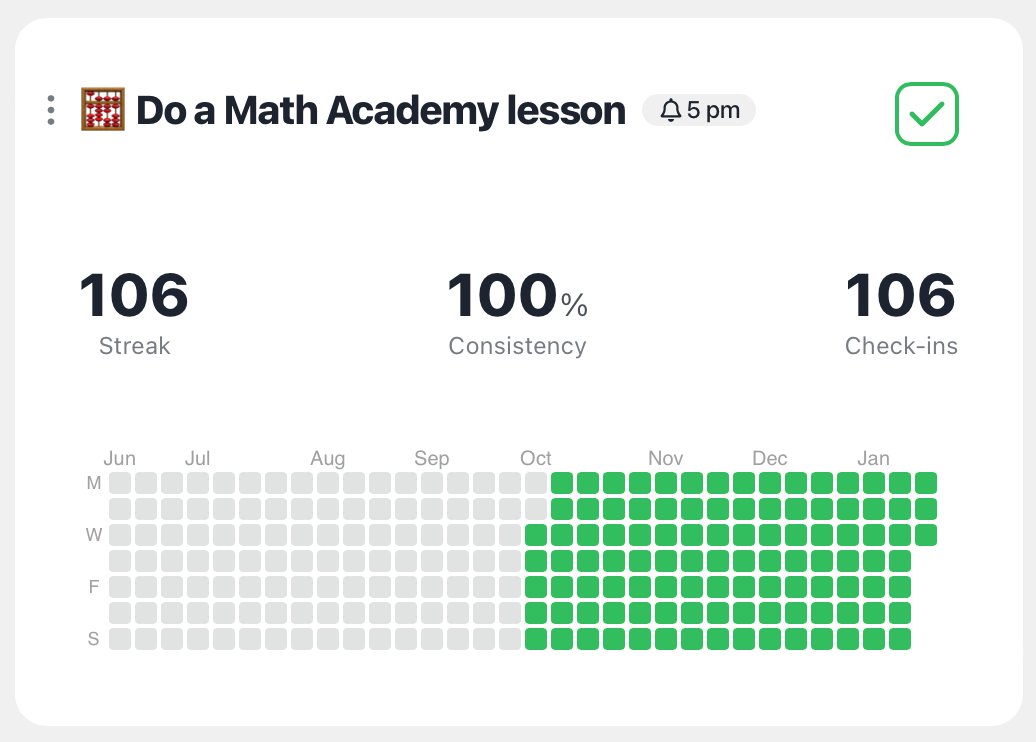
106 days down, ~1,000 more to go 😂
It’s a hard, but worthwhile and enjoyable new hobby for now.
Takeway
For hard subjects like math, I always assumed the only ‘real’ way to learn was in dedicated environments like college since online courses were best for softer, less technical topics. This was a bummer, especially for adult students like me.
But Math Academy changed my mind on this, and I’m a huge fan so far. I hope they continue to grow and expand to other complex STEM topics like computer science, physics, etc.
Overall, I’m just so excited there’s an effective, accessible way to learn hard things. If I were a billionaire, I’d invest to accelerate its progress and find a way to sponsor a license for every kid who was interested…
But for now, I’ll just talk about it to anyone who will listen 😉
UPDATE: January 20, 2024
I was surprised by the reception this received by others on a similar journey, there’s a great discussion on Hacker News.
One thing I forgot to mention is the gamification, which is based on how much XP you earn each week by completing lessons. I’ve been in the top tier (Platinum) every week so far. My username is Gabe (original, right? 😆) for those who try it out in case we end up in the same league. Happy mathing! 🧮
